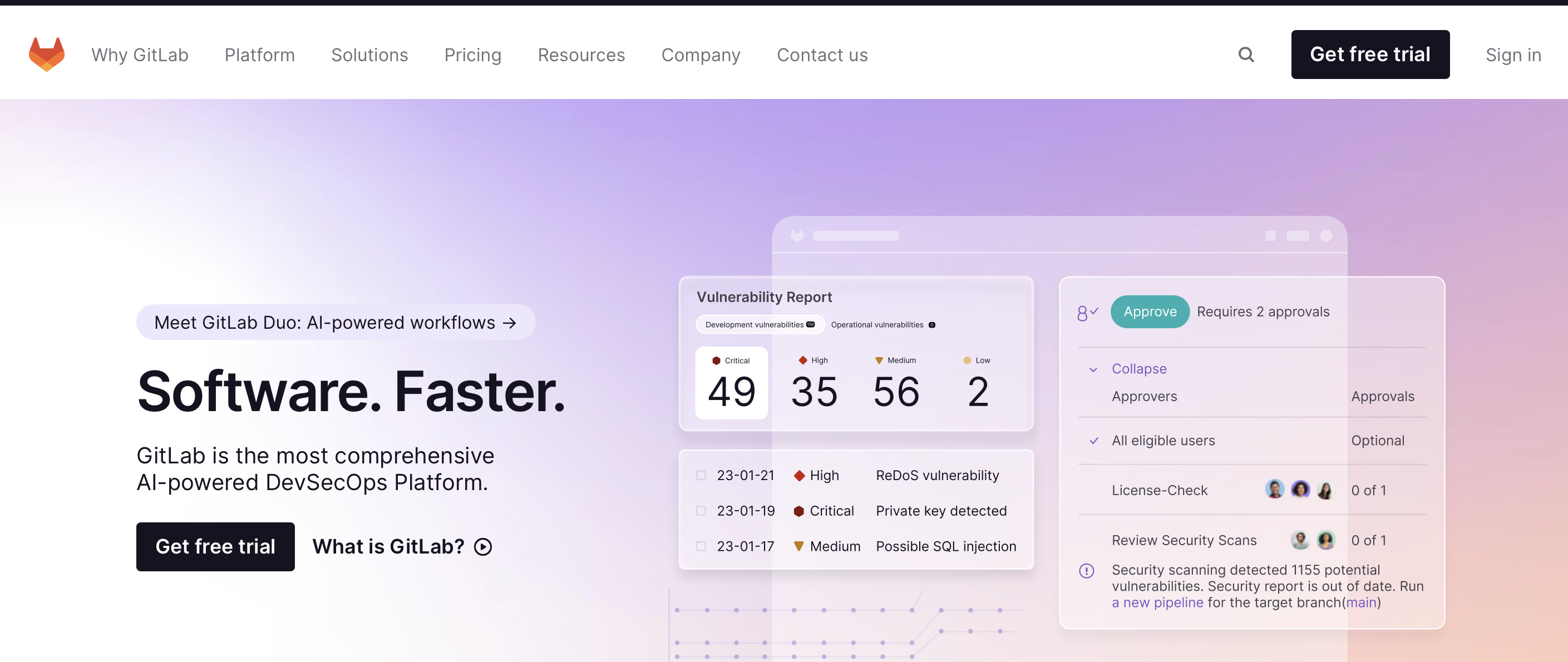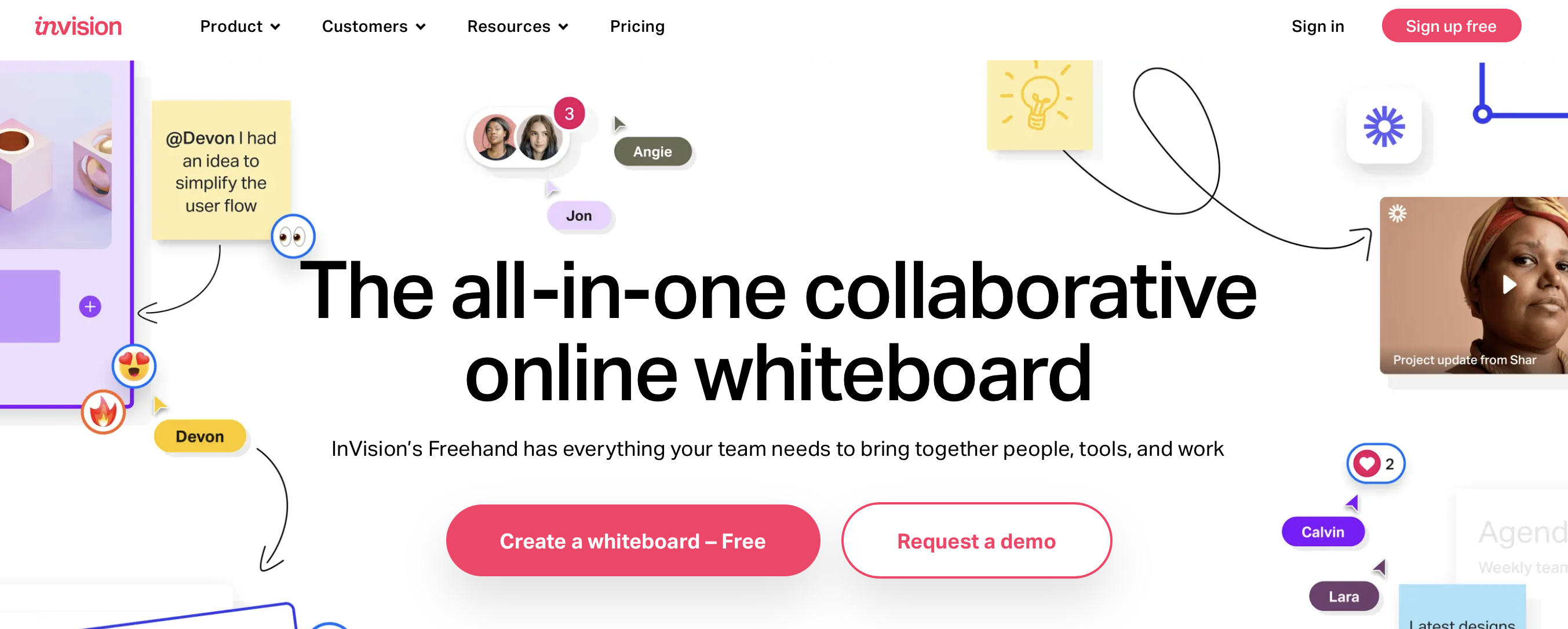The debate between hiring remote software engineers or onsite goes beyond the “will they really work at home?” and other productivity-related questions. Understanding what developers want is equally important to making successful hiring decisions.
The latest State of Remote Engineering Report by Terminal revealed that over 60% of developers are working full-time remotely in 2022. And an overwhelming 75% of developers expressed their desire to work remotely at least three days a week, with 57% stating that they prefer to work from their homes full-time.
In this article, we explore the dynamics of remote software engineering and onsite work. We will explore both roles, understanding the current landscape and developers’ preferences and helping you define the best model for your company.
What Is A Remote Software Engineer?
Remote software engineers are computer science professionals who use the same engineering principles and programming languages to build software products, develop computer games, applications, network control systems as regular software engineers.
The only difference lies in their location; remote software developers perform their job from home or another remote location outside of the office and apart from their team.
What Is An Onsite Software Engineer?
An onsite software engineer designs, develops and maintains software applications and systems using programming languages and technical expertise – all this while working physically at a designated office location or company premises.
These engineers are typically part of a traditional work environment, reporting to physical office space and collaborating with their team face-to-face. They are expected to be present at the office during regular working hours.
Why Do Software Engineers Prefer To Work Remotely?
According to a report by Turing, one in every three developers would quit their positions if they could no longer work from home. The rise of remote work, mostly because of the pandemic, significantly impacted the software engineering landscape, with a growing number of IT experts choosing remote positions over onsite roles.
These are the main reasons why:
1. They Are More Productive
Terminal´s study analyzed the productivity levels of more than a thousand engineers. The report found that 68% of developers can get more meaningful work done when not subject to the distractions of the office environment, while 32% said they´re more productive in an office setting.
Similarly, Turing´s report shared that 90% of employees say they are as productive or more productive when working in remote software engineer jobs.
“I’m more productive working remotely because I work on my own terms. In the office, this doesn’t happen; you have a designated space and schedule. At home, I have my optimal work environment, free from distractions and interruptions, which allows me to focus deeply on complex coding tasks, resulting in higher-quality work”
David Tsai, Senior Full Stack Developer
2. Better Work-Life Balance
Another significant reason why developers often prefer remote work is because of work-life balance. In some cases, they can adapt their work hours to accommodate personal commitments, and they get to create a focused work environment that allows them to have increased job satisfaction.
HackerRank says 82% of software engineers consider work-life balance a top priority when evaluating job opportunities.
“For most of my career, I had to go to an office, and commuting was already stressful. Since the pandemic, exploring what remote work was about completely changed my perspective. I can do a better job, get more focused, and spend more time doing other activities I enjoy, so for me, there´s no turning back.”
Aleksander Jankowski, Senior Software Engineer
3. More Flexibility and Autonomy
In many cases, remote work enables software engineers to set their own schedules, which translates to more flexibility and the ability to work independently. The State of Remote Engineering Report from Terminal also revealed that over 75% of software developers desire more flexibility and remote work options.
“People nowadays love working remotely, especially developers. I used to work as a contractor for 6 months, and everything was remote. You have to attend a call once a week with the entire team to touch base; that’s it. All other communication is completely async. You keep tabs on your work on Slack and the project management tool(In my case – Clickup). And in case of any errors, you just get on Slack huddle and solve it. Now, I’ve implemented the same workflow even in my agency, and so far, we’ve never received any negative feedback from our clients.”
Sreeram Sharma, Computer Science Engineer
4. Expanded Job Opportunities
Remote work eliminates geographical constraints, which allows not only businesses to have access to the best developers but also developers to have access to a wide pool of job opportunities.
They get to choose to work for companies that offer them flexibility and other benefits that, locally, they aren´t able to achieve. A survey by Stack Overflow revealed that 74% of software developers would consider relocating for a remote job if the salary and benefits were appealing.
“I lost my job in the pandemic, so I had to start quickly looking for another one. I started applying, and I didn’t realize the number of companies who hire from anywhere; I not only had more options, but I was also able to be more selective in choosing a job with the benefits and flexibility I was looking for”
Eric Taylor, CTO
5. Fewer Interruptions and Distractions
Being able to work in the environment of their choice, developers working remotely can produce higher quality work as they face fewer distractions and interruptions.
A report by Owl Labs revealed that 80% of remote workers experience fewer distractions compared to working in a traditional office setting.
“I’m an introvert, so it’s very challenging for me to work in the office. I do enjoy spending time with my colleagues but it is very draining and hard for me to focus when I need to do in-depth work as usual. With remote work, this doesn’t happen. I get to be more focused, and when it comes to the social interactions, we still do casual meetings once a week or when necessary”
Marko Dyakov, Lead Software Engineer
What Impact Has Remote Work Had On Speed Development?
While developers, over several surveys and reports, have shown their preference for a remote work environment, businesses have also explored the benefits. These are some key effects:
Take Advantage of Time Zone Differences
Time zone differences can be beneficial for companies working with remote software developers. They enable 24/7 development coverage, ensuring continuous progress and faster issue resolution as different teams can work on projects round-the-clock.
Parallel development becomes possible, accelerating project timelines by reducing sequential dependencies. Additionally, time zone differences facilitate global market coverage, catering to customers in different regions and improving customer satisfaction.
Access to Top Tech Talent
If your business struggles to recruit tech professionals, by hiring remotely, you can minimize risks and maximize benefits. Remote work allows companies to tap into a much wider talent pool since geographical locations are no longer a barrier.
You can access highly skilled developers from around the world, being able to find the right candidate much faster than if you were hiring locally. Additionally, you can also access candidates with specialized skills and experience.
Reduce Your Costs
Did you know that hiring remotely can significantly reduce your hiring and managing costs? Take a simple example. The average salary of a developer from the U.S. is approximately between $100,000 – $120,000 per year, while developers from Eastern Europe charge between $20,000 – $30,000 per year.
By offering a competitive salary, you are still paying significantly less than what you would pay locally.
Additionally, in terms of management, you need to ensure you have all the necessary tools and equipment, but the bright side is that the costs of these don´t compare to the costs of office rent.
Global Workplace Analytics conducted a survey in which nearly 60% of employers identified cost savings as a significant remote work benefit. It estimates that for all remote work jobs, at least half of the time, the total money saved would be over $700 billion annually – an average of $11,000 per employee per year.
Faster Recruitment And Onboarding
Remote hiring often speeds up the recruiting and onboarding processes compared to traditional in-person hiring. The main reason is that it allows companies to reach a wider pool of candidates without geographic limitations.
Through digital platforms, companies can advertise job openings to a global audience attracting a diverse range of skilled developers. Additionally, virtual interviews also expedite the selection and onboarding process.
A survey conducted by the Society for Human Resource Management (SHRM) found that 72% of HR professionals reported using online onboarding tools to facilitate the integration of remote employees.
Additionally, by partnering with specialized remote IT staffing agencies, companies can also speed up their hiring process. They will have pre-vetted skilled candidates with all the requirements and skills needed.
On Site Vs Remote Software Engineers – Which Model Suits Best Your Company
Remote work has great benefits that lead companies to hire top talent and produce outstanding results. However, hiring remote software developers might not be efficient for all business models. So how to know which one works best for you?
To determine what model is suitable for your business, consider the following aspects:
- Nature of the Work: Assess the nature of your projects and determine whether they require frequent face-to-face collaboration or can be effectively managed remotely.
- Availability of Local Talent: Evaluate the availability of skilled software engineers in your local market. If talent is limited, remote hiring can provide access to a broader talent pool.
- Communication and Collaboration Needs: Consider the importance of real-time communication, team dynamics, and the potential impact of remote work on coordination and collaboration.
- Company Culture and Values: Assess whether your company culture and values align with remote work principles, including trust, self-discipline, and a focus on results rather than physical presence.
Even if you would like to hire remote developers, there are a few previous steps to take to implement the right infrastructure to ensure management and collaboration run smoothly.
This questionnaire can help you assess your current state and determine what model suits your needs:
- Nature of Work:
- Are projects highly collaborative, requiring frequent face-to-face interactions among team members?
- Can tasks and responsibilities be effectively managed and completed remotely?
- Are there any specific project requirements that necessitate physical presence, such as handling sensitive data or equipment?
- Talent Pool and Availability:
- Is the local talent pool sufficient to meet the company’s software engineering needs?
- Are there any specialized skills or expertise that are difficult to find locally but could be accessed through remote hiring?
- Does the company have a strong network or partnerships that can facilitate remote talent acquisition?
- Communication and Collaboration:
- How critical is real-time communication and immediate feedback in the software development process?
- Can the company provide the necessary tools and infrastructure to support effective remote communication and collaboration?
- Are there existing communication channels and protocols that can facilitate remote work, or would they need to be developed?
- Productivity and Work-Life Balance:
- Does the company value and prioritize a flexible work environment and work-life balance for employees?
- Has the company assessed the potential impact of remote work on employee productivity and motivation?
- Can the company establish performance metrics and tracking mechanisms to ensure productivity and accountability for remote teams?
- Company Culture and Values:
- Does the company culture promote trust, autonomy, and self-discipline that align with remote work principles?
- Are company policies and practices adaptable to accommodate remote work arrangements?
- Can the company foster a sense of connection and team spirit among remote team members?
- Infrastructure and Resources:
- Does the company have the necessary infrastructure (e.g., remote access to systems, secure networks) to support remote work effectively?
- Can the company provide remote developers with the required hardware, software, and tools to perform their tasks efficiently?
- Are there any potential challenges or risks associated with remote work that need to be addressed, such as data security or compliance?
- Cost Considerations:
- What are the cost implications of maintaining an onsite team, including office space, equipment, and overhead expenses?
- Are there potential cost savings associated with remote work, such as reduced office space requirements or access to cost-effective talent in different regions?
Success Stories: 5 Companies Managing Fully Remote Dev Teams
1. DistantJob

DistantJob is a remote recruitment agency that specializes in helping other companies hire and manage global developers. The company, besides focusing on helping its clients find the right talent, is also fully remote, with employees scattered across the world. Having more than 10 years remotely, they use the right tools to collaborate and communicate successfully.
2. GitLab

GitLab is a web-based DevOps platform that operates fully remotely. They have embraced remote work as part of their company culture and have built their entire organization around it. They use a combination of communication tools, like video conferencing and chat platforms, to foster collaboration and maintain a strong sense of community among their globally distributed team.
3. Automattic (the company behind WordPress)

Automattic is known for its fully distributed workforce. They have a strong focus on asynchronous communication, utilizing tools like P2 blogs and internal wikis for documentation and knowledge sharing. They also organize company-wide meetups and smaller team gatherings to build relationships and strengthen the sense of community.
4. InVision

InVision, a digital product design platform, has a large remote workforce. They prioritize effective communication through daily stand-ups, video meetings, and transparent documentation. InVision also invests in team-building initiatives and holds annual company-wide retreats to foster a sense of connection and collaboration.
5. Zapier

Zapier is a platform that integrates various web applications. They have a distributed team that works across different time zones. Zapier emphasizes effective remote communication through clear documentation, asynchronous communication channels, and regular video calls.
Start Building Your Remote Dev Team Today!
If you want to start scaling your team with the best global talent, why wait? By partnering with DistantJob, we support you from the headhunting process to documentation and paperwork.
Our team of IT recruiters has years of experience helping businesses find their perfect match. We not only focus on the skill set but also on finding candidates that fit your company culture, work in suitable time zones, and speak fluently in English, among other key factors.
Want to know more? Book a discovery call!






